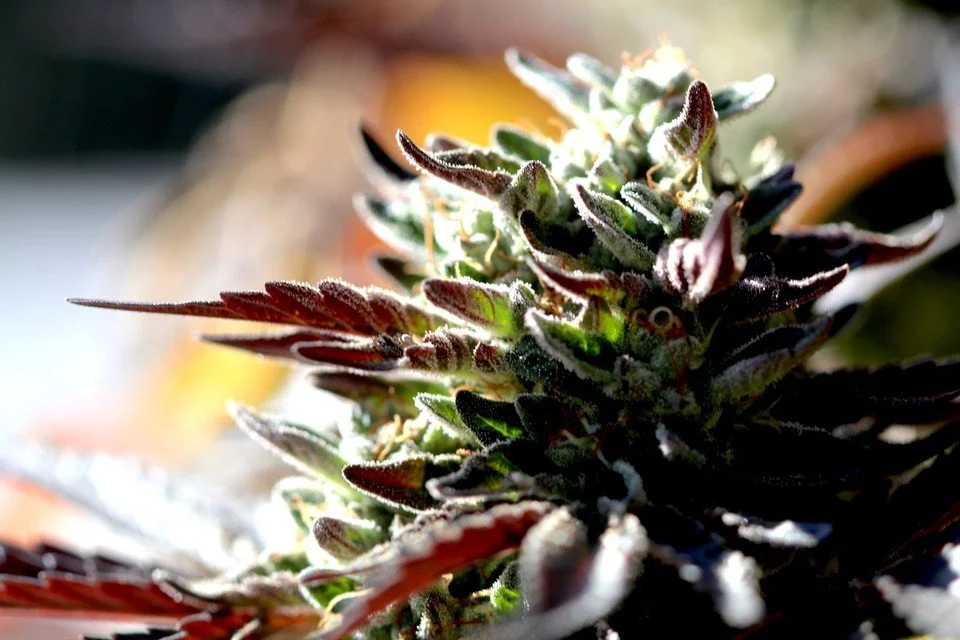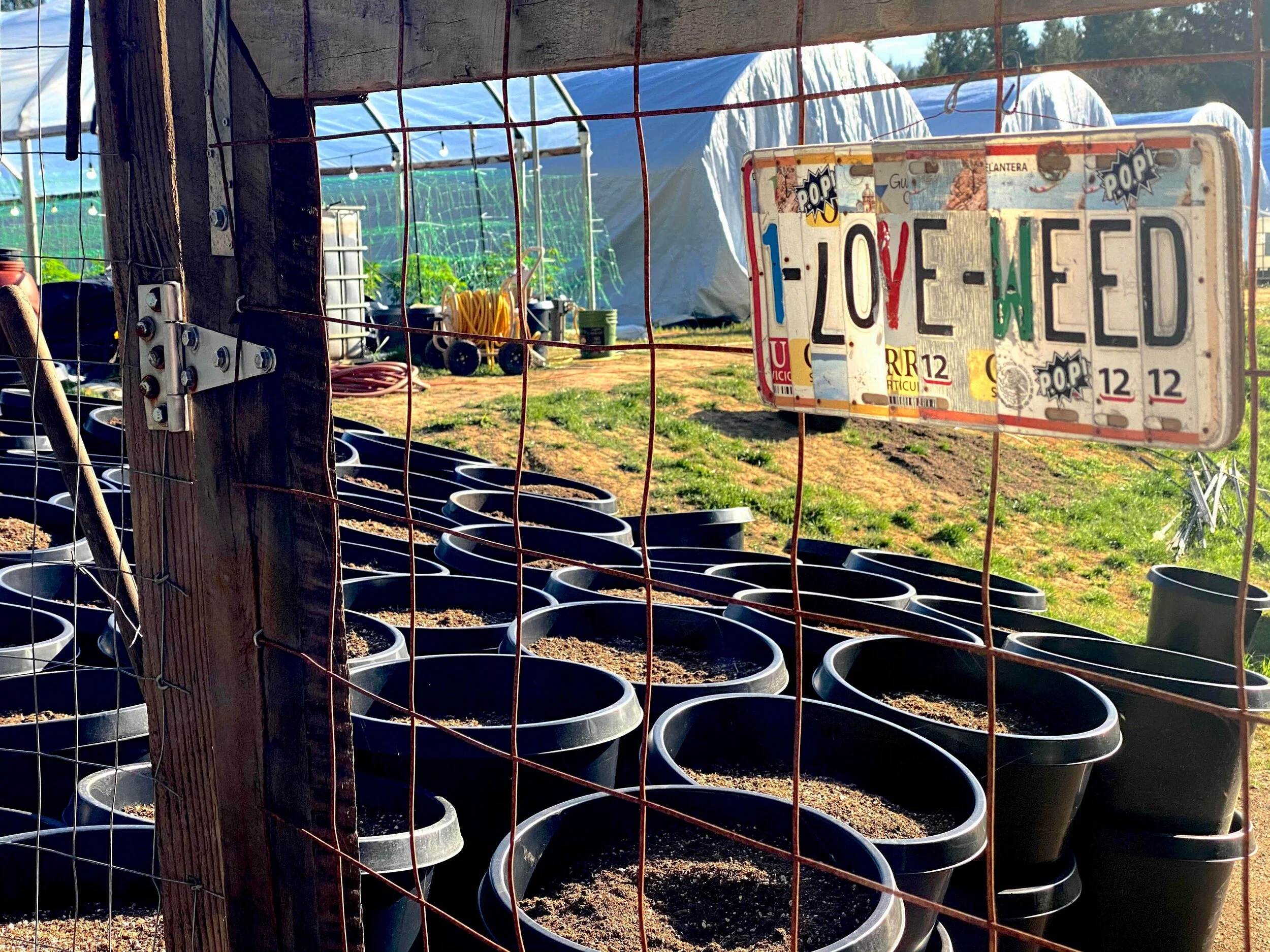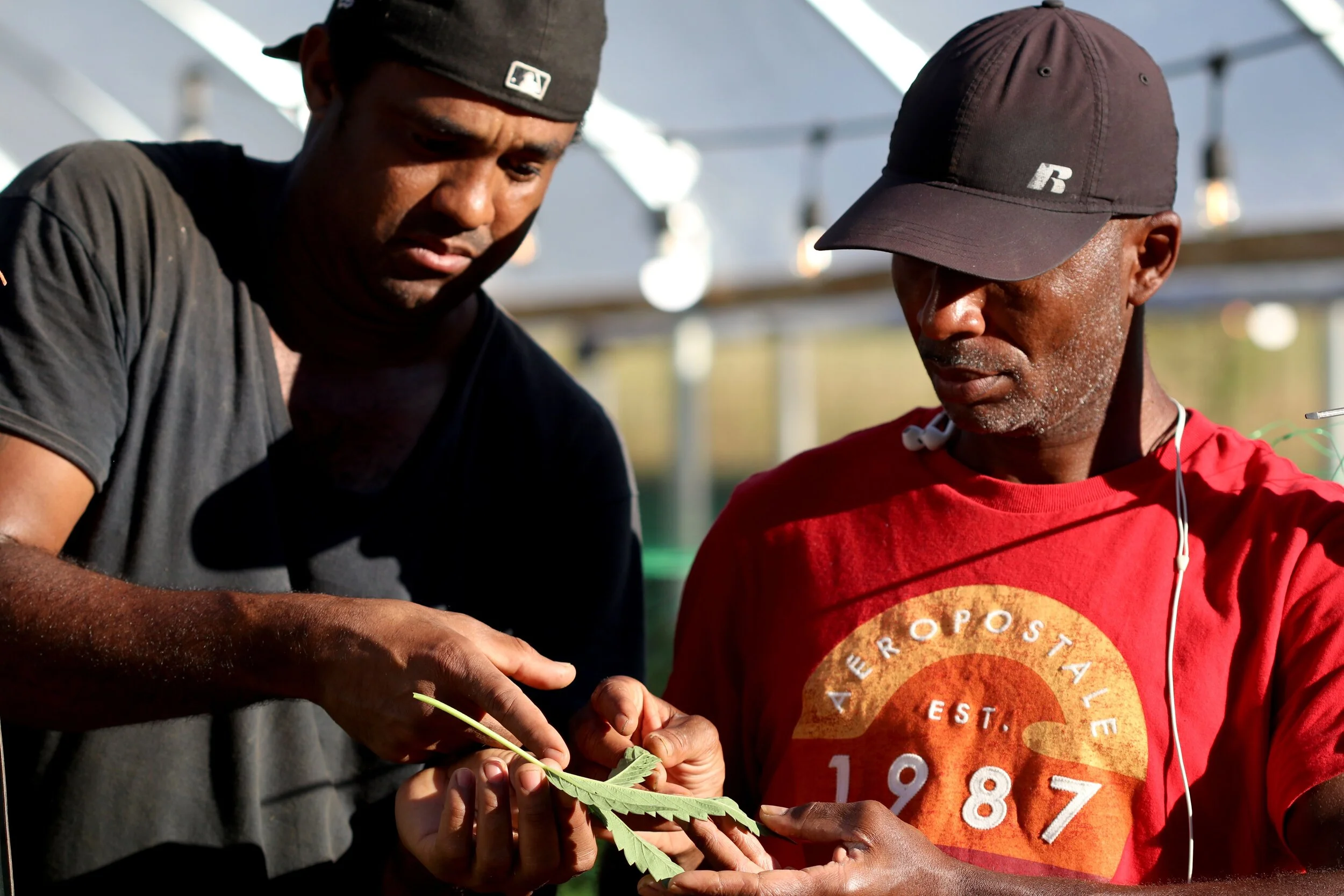Part of our passion at Giving Tree Farms lies with finding creative ways to boost our sustainability and efficiency. And much like Lean Manufacturing, we work to achieve “Lean Cultivation,” an application that reduces our waste through our cultivation procedures without sacrificing efficiency and productivity. Every area of our operation ties in methods that reduce, reuse, or recycle our waste, from the garden to the processing room and all the way into the administration office. Lean Cultivation is a fully immersive approach to operating our business, one that is great for the environment and our achievement of such high-quality cannabis.
Why We Use Pots
As cannabis cultivators who have worked in the industry for over a decade, we've tried multiple different growing methods to find what works best for us. We've had to discover where the perfect balance of working with the land and optimal efficiency lies to develop Giving Tree Farms into what it is today. Over the years, we've learned that our desire for optimal control over our environment and the need for multiple cultivation cycles throughout the year was only possible by evolving our approach. From the installation of both our cold-frame and climate-controlled greenhouses to the continuous improvement of our workflow, our personalized approach to sustainable cultivation provides our clients with the highest quality craft cannabis in the state.
Five Energy-Efficient Alternatives You Can Start Today
If you're looking to boost your sustainability this year, focusing your efforts on energy efficiency can help cut back on operational costs while bettering your relationship with the environment. There are many ways you can reduce energy use, but if you don’t know where to start, these few tips outlined below can help you get on track to a more energy-efficient lifestyle.
Transparency: Why Is It Important to Both the Farmer & Buyer?
When purchasing a product, many feel it's important to know where that product came from and how it was made. It's natural to care about the origin of your purchases because they affect our lives, whether directly, like through consuming food we buy, or indirectly, like how our dollars are applied to the business, its employees, and its production process. We care about transparency because it connects us to the source of what we've purchased. It puts an understanding of creation and highlights the efforts taken to make the product into the finished good we hold in our hands. Craft cannabis is no different, and Giving Tree Farms embraces transparency as one of our core values.
Personalizing Sustainable Cultivation
Sustainable cultivation comes in many forms, each uniquely beautiful in its own way. This is because being sustainable means working with your land and adjusting your approach to serve its needs. From the soil you grow within to the average cloud coverage in the sky, understanding your microclimate is key to creating a sustainable garden that is perfect for your particular space.
A New Beginning: Our Off-Grid Journey
We started our solar journey by signing up for Sonoma Clean Power as our source of grid energy. This program guaranteed that all of our energy use was obtained from renewable sources, like solar and wind energy. But where this came up short was during California's rolling blackouts throughout the fire season. As a cannabis cultivator, fire season takes place during our fall cultivation cycle, harvest, and through part of processing, when it's absolutely imperative that we have electricity for irrigation, humidity and temperature controls, and security measures. When we process fresh-frozen harvests, this adds an even more critical need for continuous power. Otherwise, we could lose our entire crop. We knew we needed to take matters into our own hands or possibly face an uncontrollable fate. This thinking was the start of our off-grid solar journey.
Smart Farming: Customizing Your Garden
A smart farm starts with a smart design, and new technologies can help us create a plan that maximizes efficiency and encompasses sustainability, all while keeping our unique land restrictions in mind. Regardless of the crop(s) we decide to grow, taking the time to ensure our garden will be able to operate at peak performance will prove beneficial. The future of agriculture relies on efficiency, and with a little brainpower and help from technology, even small, personal gardens can enjoy the advantages of a well-designed cultivation space.
Smart Farming - Its Effect on Cultivation Efficiency and Sustainability
Working on farm efficiency requires trying to look at a familiar issue through an unfamiliar lens. It’s vital to question standard practices in order to develop innovative “smart” farming alternatives. Smart farming is an evolving strategy that can benefit many parts of a farmer’s operation, regardless of the crop they are cultivating. Through the use of data collection, we can recognize inefficiencies throughout the season, allowing us to improve the following cycle, reduce our impact on the environment, and increase our transparency with customers.
Smart Farming - Identifying and Controlling Pest "Hot Spots"
Farmers today face erratic climates, a reality that seems to be worsening year after year rather than improving. With this, a new set of challenges rises to the surface, unfamiliar forms of pest pressure being one of them. We can combat this with smart farming technologies, using them to collect data from every part of the field to closely monitor potential threats, understand their impact, and determine the best approach for protecting our crops. Using the precise application of safe and effective crop protection practices that are both sustainable and economically efficient protects our farm from possible outbreaks that could be detrimental to our overall success. By understanding our field's data and implementing the correct treatment methods, we can shield ourselves from anticipated pest problems and create a foundation that's easy to rely on.














